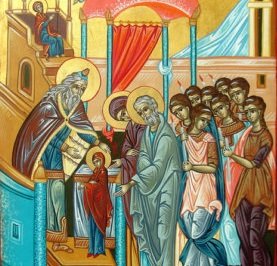In the last issue of the article, I began sharing information about the Gospel of Matthew which is typically placed first in the sequence of Gospels even though it is not the first one to have been written. As I shared with you, it was probably written a decade or two after the Gospel of Mark. I would again suggest that you pick up your bible and look at Matthew’s Gospel.
Even though Matthew takes over Mark’s threefold narrative pattern, which consists of Jesus’ ministry in Galilee, then His journey to Jerusalem, and finally His time in the city of Jerusalem, Matthew also imposes his own fivefold structure on the narrative. In between the stories of Jesus’ birth in chapter 1 and 2 and Jesus’ final days in chapters 26 through 28, the body of Matthew’s gospel has five blocks or sections of material, as scholars have long noted. Each section combines narrative and teaching and ends with a distinctive formula. For example:
7:28 – Jesus finished this discourse and left the crowds spellbound at his teaching.
11:1 – When Jesus had finished instructing his twelve disciples, he left that location to teach and preach in their towns.
13:53 – When Jesus had finished these parables, he moved on from that district.
19:1 – When Jesus had finished this discourse, he left Galilee and come to the district of Judea across the Jordan.
26:1 – Now when Jesus had finished all these discourses, he declared to his disciples, “You know that in two days’ time it will be Passover, and the Son of Man is to be handed over to be crucified.”
This fivefold structure reflects the five books of the Pentateuch, the Torah, and perhaps also the traditional division of Psalms into five sections. But the resonance with the Pentateuch, the foundational document of Judaism, is more important. At its heart is the story of Moses and the exodus from Egypt, the creation of a new community under God, and the giving of the laws at Mt. Sinai by which it was to live.
Hopefully you see the parallel that exists between the Old and New Testaments and that the early evangelists were attempting to create a document that reflected the writings of Judaism. This also suggests that most of the early Christians felt that Jesus was attempting to reform Judaism instead of establishing a new religion.
Matthew’s fivefold structure suggests that the story of Jesus is analogous to the story of Moses and the exodus in both importance and content. Jesus’ story is about a new exodus from a new pharaoh and the creation of a new community under God – and it is deeply grounded in the story of ancient Israel. Proof of this is found, in particular, in the Resurrection Services that we celebrate

